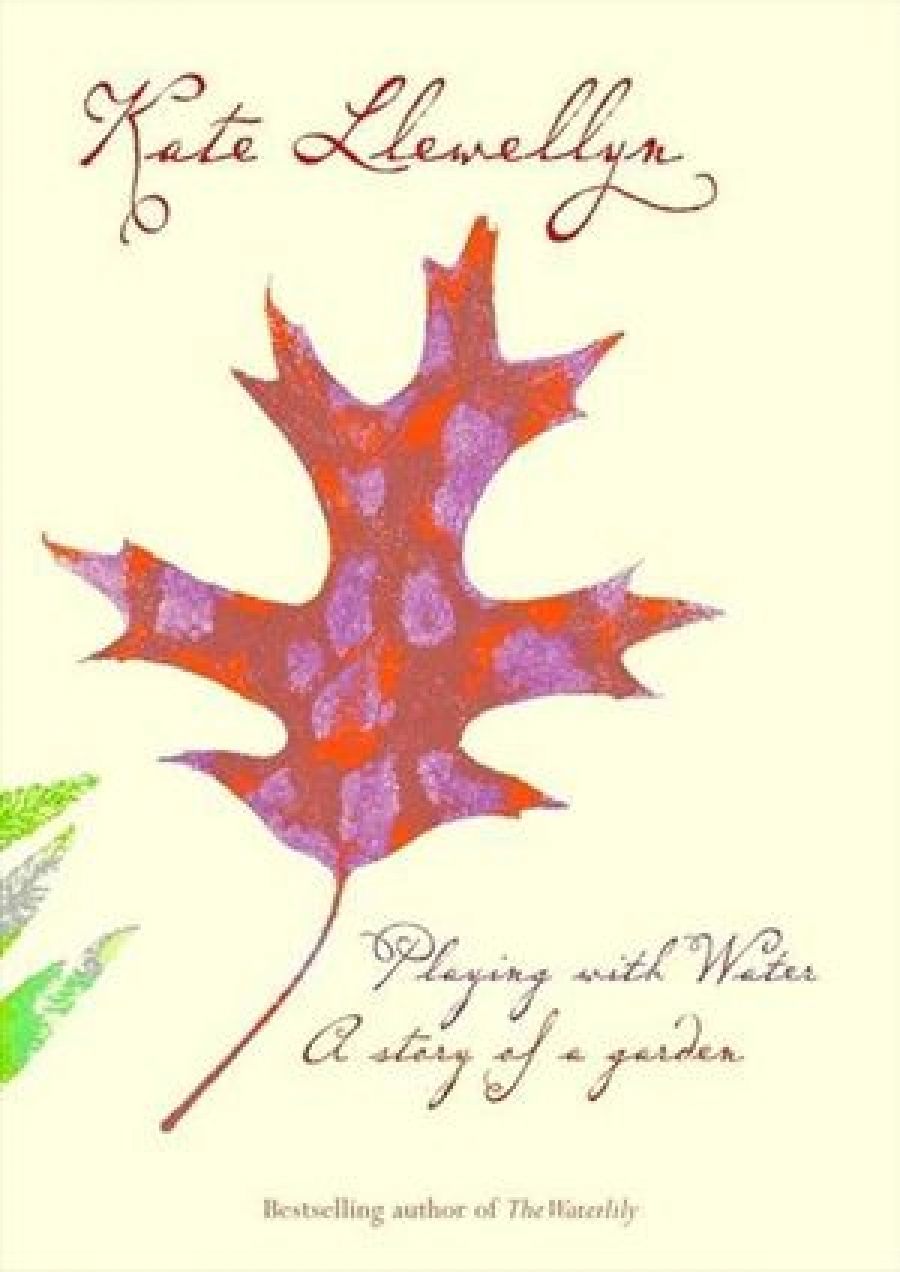
- Free Article: No
- Contents Category: Memoir
- Review Article: Yes
- Online Only: No
- Custom Highlight Text:
Kate Llewellyn has written sixteen books, which is quite an achievement. They include poetry, fiction and autobiography. One book, The Waterlily (1987), has sold 30,000 copies, a notable accomplishment for any author. The Waterlily was the first book in Llewellyn’s Blue Mountains trilogy; the second was called Dear You (1988). I read it years ago, having borrowed it from a library because I suspected the title might be an indication of the tone. It was not the epistolary format that gave me pause: I have relished many correspondences, ranging from the passionate exchanges of Julie and St Preux in Rousseau’s Julie ou la Nouvelle Héloïse (1761) to Robert Dessaix’s grapplings with life-threatening illness in his acclaimed Night Letters (1996). But for my taste, the series of missives beginning ‘Dear You’ betrayed an irritating archness. The author seemed to be caught between the heady excitement of Revealing All and a coy fear of saying Too Much.
- Book 1 Title: Playing with Water
- Book 1 Biblio: Fourth Estate, $29.95 pb, 424 pp, 0 7322 8131 8
In relation to Playing with Water, I must register that all reviewers object to publishers sending ‘pages only’, that is a book not yet properly bound, in their urge to generate speedy reviews. They do sometimes, and did in this case, follow up later with the finished article, but nevertheless the habit is to be discouraged. ‘Pages only’ leaves out everything from the recommended retail price to the list of the author’s previous works, so that I could not tell exactly the break- down of Llewellyn’s output. Maybe her oeuvre included detective stories, science fiction, or self-help books. Even websites are not much help in this regard. Ultimately, however, a new book has to stand alone and speak for itself.
Playing with Water is written in diary form, although it proffers the odd poem and recipe. It is a diary mainly of the author’s activities in a new garden, for she has moved from her former home in the Blue Mountains to somewhere closer to the southern coast of New South Wales. It is clear that she has also moved on emotionally, from the ‘You’ of the trilogy and the fraught joys of male–female relationships, to the peace and contentment of mature single-living. She is blessed with many female friends and a grandchild in Sydney, which leads her to share with us the recipe for little Jack’s favourite Lime Coconut Syrup Cake, along with Peg and Dot’s Seville Orange Marmalade –and a fortunately anonymous Spotted Dick. Friends often come to stay, having long since bonded with Llewellyn because they too are keen, even passionate gardeners. ‘Julie is here in her gumboots, making a fence around a goose’s nest …’ These friends are all amazing founts of garden- and nature-lore. As well as being able to construct a fence, Julie knows how to rear a bush turkey: ‘They get raised on medical starter or turkey starter, if you can get it. Also they must have medication in their water. Emitryl is its name. You get it from some vets.’
Thanks to the telephone, distance is no hindrance to regular garden chats, even when house guests are not present. When Llewellyn wakes up thinking about aquilegia, she rings Nan in Leura. ‘Yes, you plant the seed in autumn,’ confirms Nan. ‘Do you remember I gave you a barrow of the plants and you put them down the drive? Some are perennials, but some of the new hybrids may need to be treated as annuals …’ Such useful, like-minded friends. It is not surprising that Llewellyn regards herself as a contented woman, at peace with herself and her world as she soaks seeds that have passed their use- by date, wonders where the wind has gone to, the one her mother sheltered from when she was a child, or, with friends, looks up the exact definition of bloaters in Jane Grigson. The results are more than academic. ‘All this talk of fish meant Ruth got up and asked if we would like smoked salmon on scrambled eggs for breakfast, and is now making them. I can smell them – and the toast.’
What a lucky woman she is! But no. It is not a matter of luck. Llewellyn has earned her rewards through the cultivation of inner wisdom. She knows and devotes herself to what she truly loves. In writing this book, she has set out to extend these joys to her bevy of readers, reaching out with genuine generosity to share the exultation of seeing new buds sprout on a vine she thought she had killed with spilt paint. It is of dozens of similar small epiphanies that this book consists. Llewellyn’s admirers will feel delight and gratitude.


Comments powered by CComment